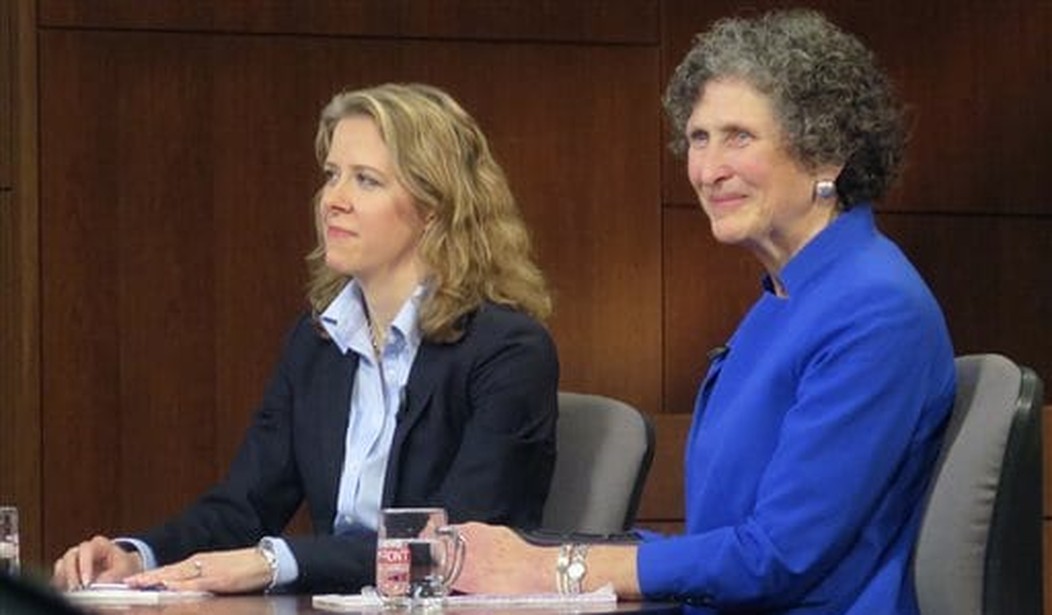In this very unusual election year, it is understandable that all eyes are turned to the spring primary elections and caucuses preparatory to the party conventions in July and the general election in November. But other offices are being decided this spring, too — offices of crucial importance on the municipal, county, and state level.
And some of those elections are shaping up to be just as nasty as the national elections promise to be.
Here in our little Midwestern laboratory of democracy, Wisconsin, a brutal battle is shaping up for the state Supreme Court. It all started when long-serving Supreme Court Justice N. Patrick Crooks (considered to be a “swing” vote between the more conservative wing of the court’s jurists and its Leftist activists) was found dead on September 21, 2015. Crooks, whose term would have expired this year, had long been in failing health and had previously announced his intent to retire.
Republican Governor Scott Walker acted quickly, and on October 10 he appointed Judge Rebecca Bradley to fill the vacancy. Judge Bradley, now Justice Bradley, had previously served on the Wisconsin Court of Appeals, a post to which she had also been appointed by Walker in an earlier administration. The appointment is only to fill out Crooks’ term; to retain the position, she has to run in this year’s spring election on April 5, which is concurrent with the presidential primary.
Ever since the landslide election of 2010 — which saw the most dramatic single election change in Wisconsin history as Republicans took control of both houses of the state legislature, the governor’s mansion, and every statewide office which had been up for election save one — frustrated Democrats have tried desperately to utilize the court system to tie up any legislation passed by the Republican majority and signed by the governor.
The court of last appeal, of course, has been the state Supreme Court.
The 2011 Supreme Court election pitted Justice David Prosser, considered one of the court’s conservatives, against Deputy Attorney General JoAnne Kloppenburg, a long-time if rather obscure Leftist activist and fixture of the Madison-area establishment. The backdrop was the dramatic riots then taking place in the state capitol over the Act 10 legislation, which limited the collective bargaining rights of public-sector unions in the interest of plugging an unconstitutional $3.6B budget shortfall. Turnout was intense for an off-year election and the battle was closely fought; so closely, that it resulted in a recount. Finally, on May 31, 2011, Kloppenburg conceded.
Every Supreme Court since has been a pitched battle, as the Left strives mightily to replace conservative justices who limit themselves to interpreting the law as written with activists who will legislate from the bench, so far without result. For many years the court has been balanced on the knife’s edge, with Crooks’ votes often being the deciding one among the seven-justice panel. With Crooks’ death and Bradley’s appointment, the seesaw tipped decidedly to the right.
And so we come to this year’s contest, in which JoAnne Kloppenburg is back to try again. By virtue of the general state election in 2012, Kloppenburg was elected presiding judge over the Wisconsin Court of Appeals for the very liberal IV District, the position from which she is running now.
How qualified is Kloppenburg? Well, let’s drop in on a forum which was held before the Youth Commission in the Milwaukee suburb of West Allis the other day.
Both candidates appeared at the forum to field various questions meant to draw out their judicial philosophies and approaches. One of the questions was a relative softball: they were asked to name which president they thought had been most influential in American history and why.
Justice Bradley answered first, and noted the proximity of Abraham Lincoln’s birthday to the event. She felt that Lincoln was the most influential for holding the union together through the Civil War, and ultimately ending chattel slavery in the United States.
Kloppenburg did not disagree, but she decided to embellish a bit, emphasizing the deviltry of human complexity, and delivered this gem:
Any president that you might name would highlight how internally complex every person is. President Lincoln had slaves and yet he led this country in emancipating black people from slavery.
This is a 62-year-old woman educated at Yale and Princeton, and who has taught at the University of Wisconsin Law School since 1990, who thinks that Abraham Lincoln was a slaveholder.
But the campaign is turning nasty, not merely surreal. Desperate to dig up any dirt they can find on Justice Bradley, the Left has had to reach back twenty-four years to find an article Bradley had published in the Marquette University student newspaper as a 21-year-old undergraduate. She wrote disparagingly of then-newly elected President Clinton and homosexuals. They demanded her resignation for holding such hateful, prejudicial opinions. There is no evidence whatsoever of any such matter informing her judgment in any case which has come before her.
Did you do anything when you were twenty one years old of which you might not be particularly proud of today as a mature adult? Whom would you rather see on the bench: a forty-five-year-old woman who wrote something indiscreet as an undergraduate student — for which she has apologized and expressed her mortification — or a sixty-two-year-old woman who right now believes Abraham Lincoln was a slaveholder?
As the saying goes, you be the judge.









Join the conversation as a VIP Member